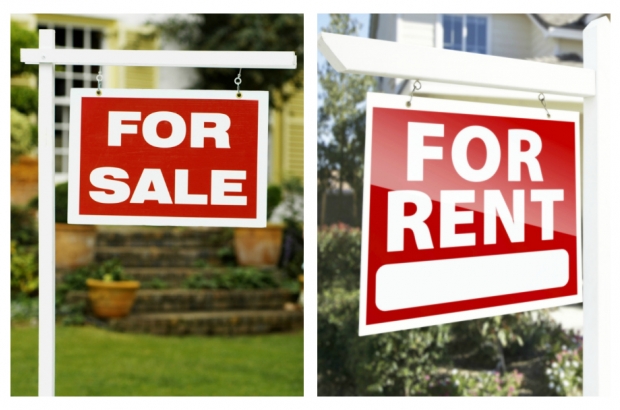- Daily & Weekly newsletters
- Buy & download The Bulletin
- Comment on our articles
To buy or to rent?
I moved to Antwerp in the 1990s and had no intention of buying property in Belgium, even though I expected to stay here at least for the duration of our children’s education. As the kids were infants, this was a 20-year-plus commitment. What put me off buying property in Belgium was the outrageous tax levies charged by the Belgian government and various other transaction costs which total almost 20% for buying and selling.
What I discovered in Antwerp, though, was that it was very difficult to find decent family accommodation in the rental market. It was explained to me that houses were usually bought rather than rented. Then, in 1998, we decided to move to Brussels, where the housing market was very different. It was easy to find houses to rent and, unlike Antwerp, very difficult to buy. This suited us fine, initially. However, the decision to buy or rent your home involves more than financial considerations.
Rental contracts tend to be for nine years and thereafter your landlord can ask you to leave, resulting in potential difficulties finding a suitable alternative in your desired location at short notice. And we’ve found it difficult to get our landlord to make timely, professional repairs even in dangerous situations. In addition, you don’t have the same freedom to renovate that an owner-occupier has – and why would you want to spend money on a property that doesn’t belong to you?
So, while buying an investment property may not be such a good idea, it does makes sense to buy the home you’re going to live in if you can expect to stay in Belgium more than a few years.
Although it can take up to four months to complete a property purchase, you could be legally committed to paying the agreed price within days of having your offer accepted. Unlike in neighbouring capital cities, it’s difficult to get a read on the value of property in Belgium. There are relatively few housing transactions, many are private, and official prices have historically been understated so that part of the purchase price can be made ‘au noir’.
Consequently, time is required to discover the market value for the sort of property you are looking to buy. This is really important to know as you need to be comfortable committing yourself to a given property and price almost immediately. The old adage ‘He who hesitates is lost’ applies here. The competition for correctly priced accommodation in desirable areas is fierce and if you don’t sign a contractual agreement almost immediately, there is a very real risk that someone will beat you to it.
If you have liquid assets, an alternative to taking out a mortgage is a loan secured against investments. These loans, at similar or better rates than mortgage loans, can help you avoid the expensive add-on costs, fees and taxes usually levied on housing finance. This type of loan is looking increasingly attractive given the likelihood that interest rates will remain below stock-market returns in the coming years.
The eurozone looks set to imminently follow the lead of other Western governments in pursuing an economic policy of financial repression, or deliberately keeping interest rates at or close to zero while allowing inflation to increase. The objective of this policy is to reduce the value of paper money so that government and corporate debts become more affordable.
A side effect of this policy is that the interest rate on loans secured against investment assets can be as low as 2%. An added advantage is that only interest payments are due during the loan period. Try getting a mortgage loan like that from your bank!
Philip Curran is an independent financial adviser based in Brussels and can be contacted at tpcurran@skynet.be









